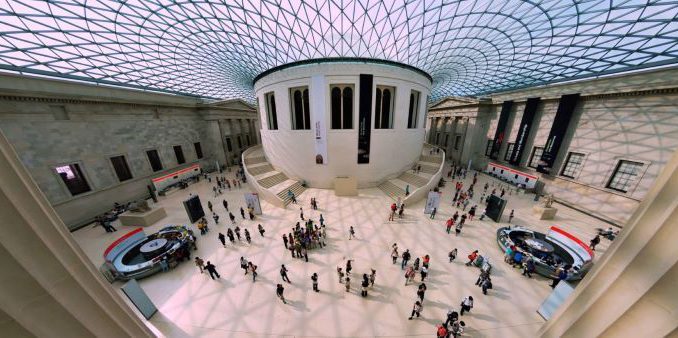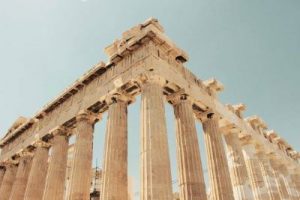

Choice
One of the most exciting things about classics at King’s is the vast range of modules offered. As a self-certified commitment-phobe, I have always struggled to find my singular academic passion. Luckily, I discovered that classics is a subject which encompasses a whole range of topics within in it. These include: art, archaeology, philosophy, literature, history and languages. King’s is officially the 3rd biggest department in the UK, meaning that the range of modules offered is extensive. I have taken advantage of this myself and enjoyed a wide variety of modules during my years at the university. With so much variation, I have never had a chance to be bored!
Access
It is a great advantage to be studying classics at a London university. The access to the multitude of museums and libraries not only quenches any budding classicist’s thirst for knowledge but also comes in pretty handy when I need to write an essay. I particularly enjoy working in the ICS, a library dedicated to classics, which provides a quiet study environment that has the comforting aroma of all books and a box of blankets to warm you through the grueling winters! I have also been lucky enough to enjoy one of my seminars in the British Museum itself, though not as lucky as some who have also been able to handle the artefacts as part of their visit- not that I’m jealous.
The Greek Play
The annual Greek Play is a unique and unforgettable experience. It is an opportunity with provides students with the chance to direct, perform, produce and many other roles. Each year, the play is performed in a mixture of the original Greek and modern English. It is always fascinating to watch people, some of whom have never taken an ancient language module, reciting the Greek with such accuracy and conviction. I participated in my second year of university as part of the business team and the front of house team. It was lots of fun to meet so many new people that I hadn’t met in my first year. I also learnt some new skills along the way which have come in useful on my CV.

Funding
The department of classics provides a couple of funded opportunities, both of which involve the aspect of travel. They are opportunities to enhance your understanding of the subject and be able to put history into the context of its locale. The Jamie Rumble Memorial Fund covers the cost for 25 MA and BA students to visit a Classical land as part of their module. The Scullard Bursary, something I have benefitted from myself, is a travel bursary that any first or second year classics student can apply for so that they can pursue a personal project. Last summer, I went to the Cotswolds to enhance my understanding of Romano-British culture. It was an extremely fun trip and I couldn’t have done it without the funding from the classics department!
The Future
So, what can you do with a Classics degree? The question of what to do after your degree is something that causes anxiety for a great number of students. As I mentioned earlier, there are so many topics encompassed within the realms of classics that you have to opportunity to acquire a great range of different skills; something that will come in useful when you need to write a CV. The benefit of doing a classics degree is that you are not limited in choice after you graduate since it is not a vocational degree. Many people who do classics go on to work in sectors such as the civil service, publishing, law, teaching- the list goes on! If I’m honest, I’m still not sure what I want to do after I graduate but I intend to take advantage of the many careers and networking events held at King’s.
Read More
If you enjoyed this, check out Ciara’s insight into what inspires her most about a Classical Art and Archaeology MA.
For more information on the day to day experience of being a classics student at king’s, you can read Issabella’s day in the life of a classics student.

Leave a Reply